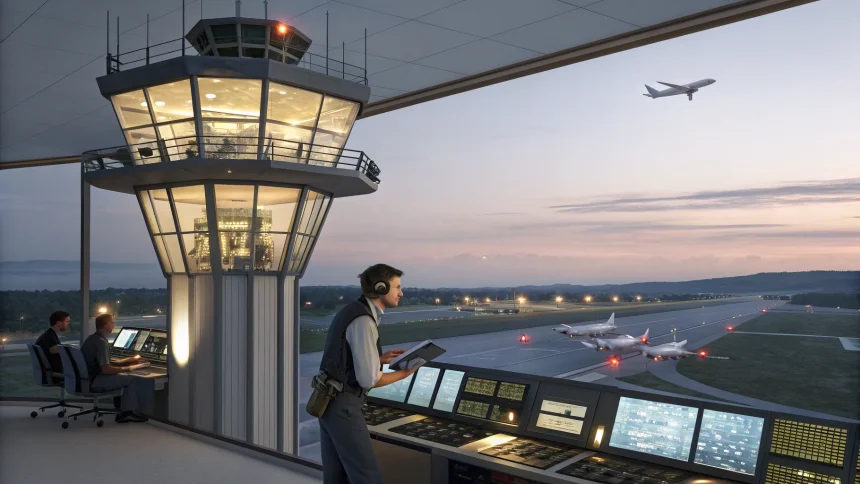Only a fraction of the nation’s air traffic controllers will receive a $10,000 bonus tied to service during the government shutdown, after the Federal Aviation Administration said the payments apply only to those with perfect attendance. The decision means 776 controllers, out of more than 10,000 who worked without pay, will qualify, despite a suggestion by President Donald Trump that the bonuses should go to those who kept the system running.
The FAA confirmed the policy Thursday, setting off a new debate over fairness, safety, and morale in one of the most stressful jobs in government. The move affects controllers across the United States who kept airports open as the shutdown dragged on.
“Only 776 of the more than 10,000 air traffic controllers who had to work without pay during the shutdown will receive the $10,000 bonuses … because … only controllers with perfect attendance will get [them].”
Background: A shutdown that strained the system
During the lengthy federal shutdown under President Trump, thousands of essential workers were ordered to show up without pay. Air traffic controllers were among them. They guided flights, staffed towers, and handled heavy traffic with limited relief, while waiting for back pay that arrived only after the government reopened.
Controllers faced mounting pressure. Some called in sick, citing exhaustion or family needs. Delays at major hubs drew national attention. The FAA and airlines warned of staffing stress, even as managers worked to keep operations steady.
The policy: Perfect attendance as the threshold
The FAA’s criterion is simple on paper and strict in practice. Only those with zero absences during the shutdown period will receive the bonus. That excludes workers who missed time due to illness, childcare emergencies, or other approved leave.
Supporters of the standard say it rewards those who never missed a shift during a difficult period. Critics say it penalizes those who were stretched thin and made reasonable choices to manage health and family obligations.
- Eligible: Controllers with perfect attendance during the shutdown period.
- Ineligible: Controllers with any absence, even if justified or approved.
- Result: 776 eligible out of more than 10,000 who worked unpaid.
Worker reaction and union pressure
Controller advocates argue the policy ignores the realities of safety-critical work. Fatigue and illness can lead to mistakes. In aviation, those risks carry high stakes.
Union voices have often stressed that disciplined staffing is essential. They have pushed for policies that value both reliability and safety. Expect further talks over whether attendance-only criteria discourage responsible sick leave and transparent reporting of fatigue.
Safety, staffing, and public impact
The attendance filter raises broader questions. Will it incentivize showing up while sick? Could it worsen fatigue in a system that already operates under high stress? Aviation safety relies on well-rested, focused professionals. A policy that prizes perfect attendance might conflict with that aim.
For travelers, the near-term impact is limited. Flights are operating, and the bonus is a one-time issue. The longer-term risk is morale. Retention and recruitment of controllers are ongoing challenges. A policy seen as unfair could make it harder to keep experienced people in the job.
What comes next
The FAA’s decision is final for this round of bonuses, but the debate is not over. Lawmakers and labor groups may press for a review of eligibility rules in future emergencies, including carve-outs for documented illness or caregiving.
Experts suggest three questions to watch:
- Will the FAA refine criteria to include approved leave without encouraging misuse?
- Can agencies set clearer contingency pay policies before the next shutdown?
- How will morale and staffing levels respond over the next hiring cycle?
The numbers are stark: more than 10,000 controllers kept the system running without pay; 776 will see the bonus. The policy sets a firm line but leaves many feeling overlooked.
As aviation regulators and unions weigh the lessons from the shutdown, one goal stands out. Any future incentive should reward commitment without nudging workers to choose attendance over health and safety. Clearer plans, agreed to in advance, could prevent the same dispute from taking off again.







